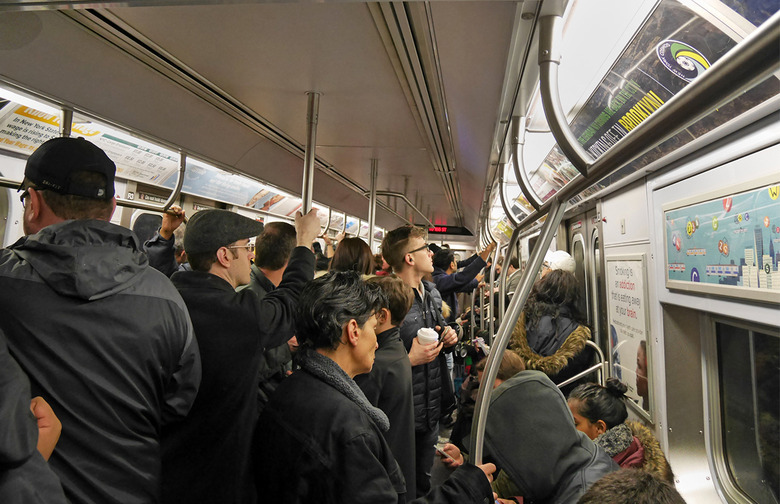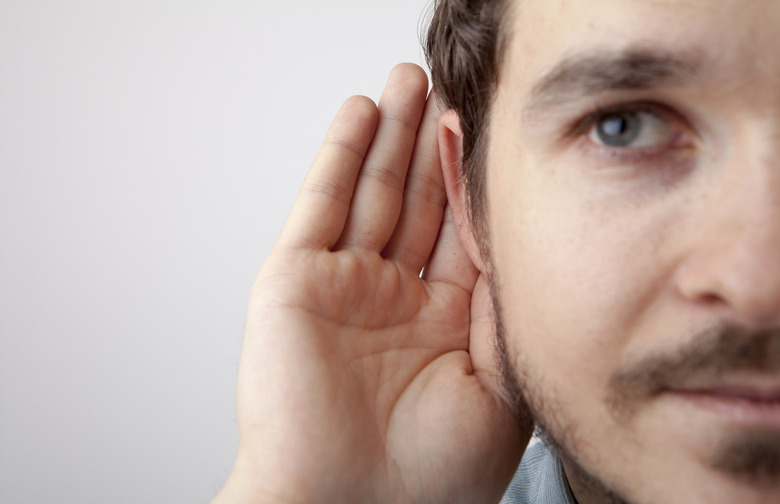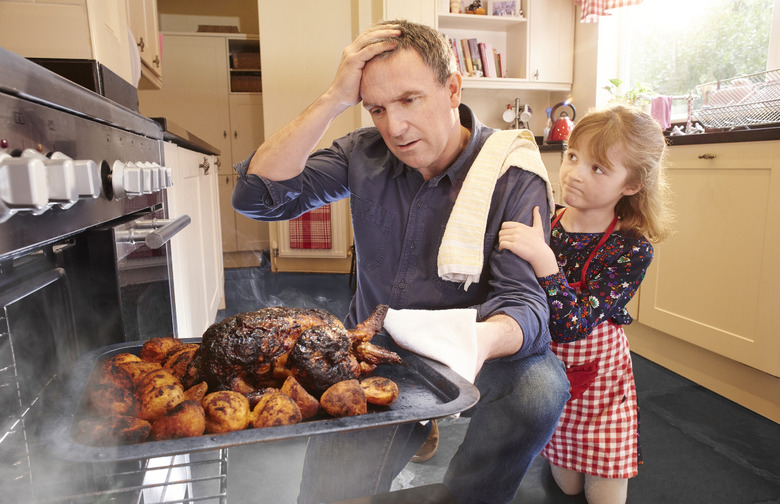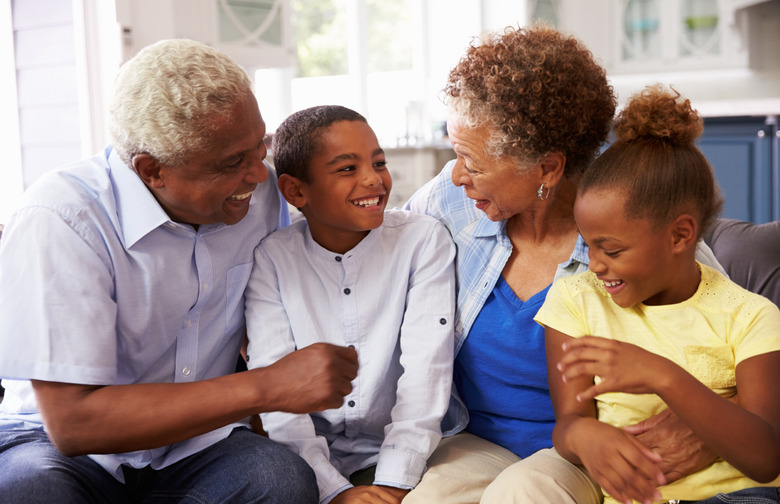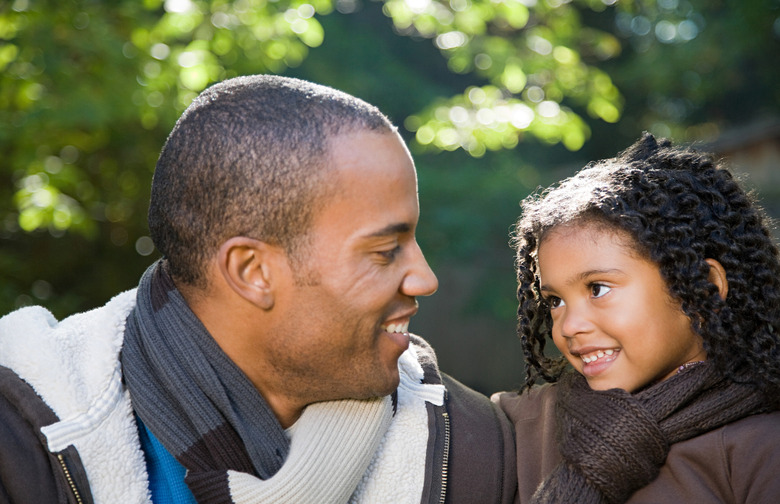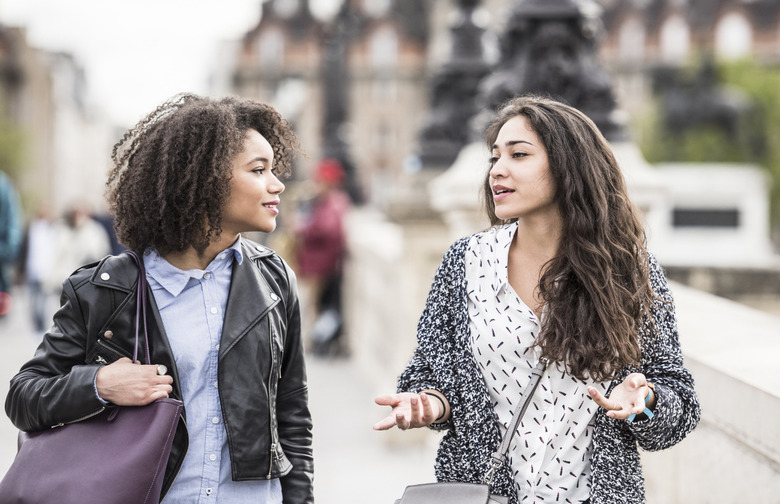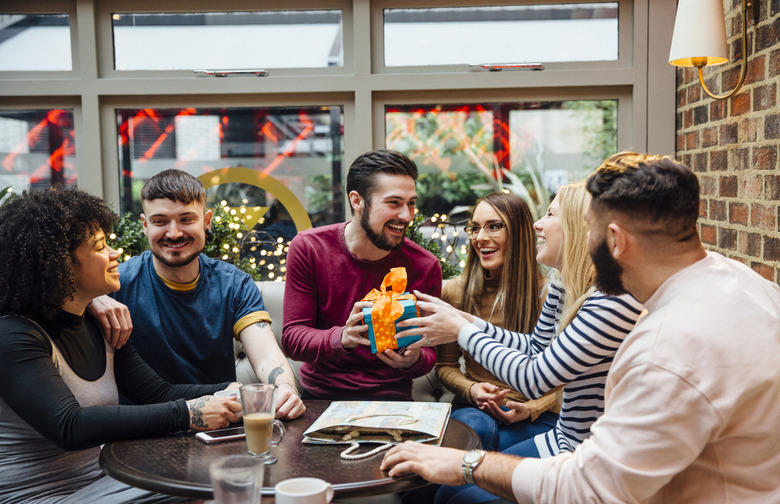15 Nice Things You Need To Say More Often Slideshow
By using curt language, informal phrases, and ignoring the people in your presence, you're actually being really rude without even realizing it! Luckily, adopting some nice, polite language is one of the easiest ways to improve your manners and become a better person.
“Excuse me.”
Listen: We hate slow walkers, people who stand in front of the train doors, and oblivious people who pause at the top of a staircase as much as you do. But instead of barreling past people and slamming your elbows in to their sides, use this phrase. Who even knows?! You may wake these sleepy people up to their own impolite behavior.
“Hello.”
You know what's great about people in small towns and the South? They'll always greet their neighbors. If you're a big city dweller, don't be afraid of a stranger on the street. Say "hi" to someone new. They won't bite! (We think.)
“How can I help you?”
If you see someone struggling, even in the slightest bit, offer a helping hand. Heck, the person doesn't even have to be lifting a heavy box! Just helping someone organize their papers, research a project, or clean their living room will make you feel better and become a kinder friend.
“I beg your pardon?”
When you don't hear someone the first time, don't just bark "What?" Instead, say "I beg your pardon?" or "Excuse me?" to get the same message across while seeming far less demanding.
“I understand.”
Whether you're confirming the receipt of a message or you're letting a friend in need know that you get what they're going through, this simple phrase really can go a long way.
“I would like to introduce you to…”
When making an introduction, don't be afraid to go a little more formal than you typically would. Just saying "This is so-and-so" will do, but this phrase will make the person you're introducing feel more important, special, and at ease.
“I’m sorry.”
Don't over-apologize, but it's important to own up to your own mistakes. When you've made a mistake in your relationship or at work, apologize and then move on. Don't dwell on it.
“Ma’am” and “Sir”
Some people feel that "ma'am" and "sir" are titles best reserved for the elderly. Once kids start referring to you as such, it may as well be time to move into the old folks' home, right? Wrong! These words are actually signs of respect for others and are the epitome of proper language. However, if someone kindly asks you not to refer to them as "ma'am" or "sir," then please do oblige them.
“May I…?”
First off, asking "May I?" is how one asks permission. ("Can I?" indicates ability.) Before you leave a table, make a phone call in a public space, or move in front of someone in line, ask politely with "May I?"
“Mr.” and “Ms.” (or “Miss” and “Mrs.”)
Being formal is a big part of using nice, polite language. Like using "sir" and "ma'am," when addressing someone older than you, use these phrases and their last name until they ask you to use their first name.
Nothing
Listen instead. Part of being a good conversationalist is knowing how to be a good listener. Pay attention when someone is talking to you and pay them respect with your silent acknowledgment that you hear them.
“Please.”
There are two simple phrases everyone needs to say in order to be the most basic polite person. This is one of them. Whenever you ask for something, tag on a "please." You'll find you get what you want just a little bit quicker.
“Tell me about yourself.”
People love talking about themselves, so it's nice to take a general interest in the people that you meet. You don't have to be so blunt as this phrase suggests, but make small talk with those around you and ask engaging questions (and follow ups) about their lives. You may just make a new friend!
“Thank you.”
Remember "please," one of two simple phrases everyone needs to say in order to be just a little bit polite? Well, "thank you" is the other essential. Whenever someone does you a small favor, when a waiter brings you a new glass of water, or whenever you're feeling just a little grateful, throw this phrase out. People like to be appreciated, even in this small way.
“You’re welcome.”
These days, when someone says "thank you," a common way to respond is "no problem." While there's no real issue with acting as though the favor you'd just done or compliment you gave was no biggie, it's best to accept the thanks with this good, old-fashioned phrase. It shows your appreciation for the "thank you" and proves that you are not a rude person.

